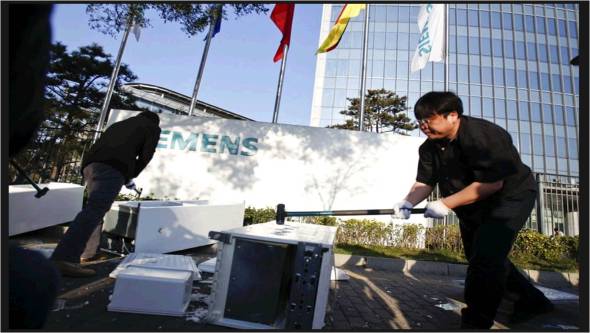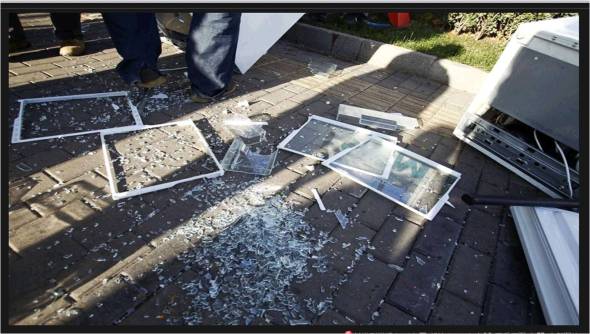How can we practice ethical PR?
Posted: February 16, 2012 | Author: dearsue0926 | Filed under: case study, digital PR | Tags: code of conduct, crisis management, digital PR, ethical PR, ethics, media relations, professhion, social media, transparency, Weibo | Leave a commentThough public relations is about managing reputation, the reputation of itself has always been questioned. In mainland China, where public relations is growing at its fastest speed, people begin to take notice of PR, unfortunately, its bad side. Many corporate crises happened in recent years not only destroyed the image of the companies, but also the reputation of PR.
The debate I took part in was about how PR practitioners can practice real ethical PR. After study, we found that who your clients are decides whether you can practice ethical PR. Sometimes the PR practitioners put public interest first but the client does not. This will place PR professionals in ethical dilemma.
Siemens Refrigerator Crisis
On 27th September2011, a famous English trainer Luo Yonghao (Luo) posted on his Weibo that his Siemens refrigerator could not be properly closed. This post was retwitted by over 2000 Weibo users on that day. Then on 29th, Siemens stated that they show their concern on this problem and found this was not a quality problem after investigation.
Half a month later, Luo was still not satisfied with the result of investigation and the attitude of Siemens, he decided to smash Siemens refrigerators in public. On 20th November, Luo and some others came to the Beijing headquarter of Siemens and smashed 3 refrigerators into pieces. A letter was sent to Siemens asking for the recall of the flawed product.
Until that time, more than 500 consumers had reported that they had the similar problem with their refrigerators. Siemens held a press conference to explain that those were different problems of different products, so they could not recall any of these products. They also stressed that some problems were caused by long time use or the careless use of consumers.
Siemens did not apologise for this issue until 4th of December, but still insisted it was not quality problem. Again on 20th December, Luo smashed dozens of refrigerators with problems in Haidian Theatre. The video of the exchange meeting has been viewed by over 215,000 times on China’s biggest video site Youku. Luo said he would never let it go unless Siemens gave an satisfactory reply and solution.
Siemens Refrigerator Door Exchange Meeting, Haidian Theatre (about 69 mins)
Then the leading local PR agency Blue Focus got involved in this crisis. Siemens China claimed that their PR work was outsourced to Blue Focus and thus would not be directly responsible for their official statement. A coordinator from Blue Focus asked Luo what his appeals were over telephone, and afterwards Luo uploaded the whole telephone recording to the Internet. It is said that someone on board in Blue Focus used his relationships and power to threaten some media to solve this problem. If the media reported anything about this crisis, Blue Focus would asked their clients to abolish their advertising contracts with the media.
Apparently, the behaviour of Blue Focus violated the ethics of PR profession. Now Blue Focus showed its face in public and brought a bad fame of the PR industry in China. Many netizens not only criticise Siemens but the PR agency as well. However, the point is that no matter how professional or powerful the PR agency is, it is still a consultant, an adviser. Perhaps Siemens rejected all the suggestions that Blue Focus gave them and asked them to threat the media.
Things we also should think about:
1. Luo Yonghao is extremely active on Weibo and has great social influence (nearly 1.5 million followers and more than 10,000 posts). Once he pointed out the problem of Siemens refrigerator, thousands of people supported him and followed this issue.
2. Everything happened on Weibo. Luo Yonghao used his Weibo account to update the whole issue by using posts, photos, audios and videos. The degree of transparency is so high that Siemens cannot deny its mistake and if Siemens did anything wrong further, the state of this affair would be much more serious.
3. The relation between PR practitioners and media in China is not regulated by any regulations or even code of conducts. Though it was Blue Focus’s fault to threat the media, the phenomenon existed in China in a wider range.


